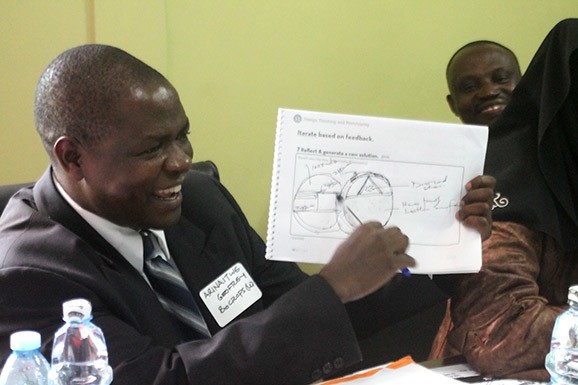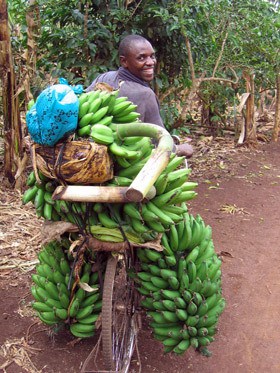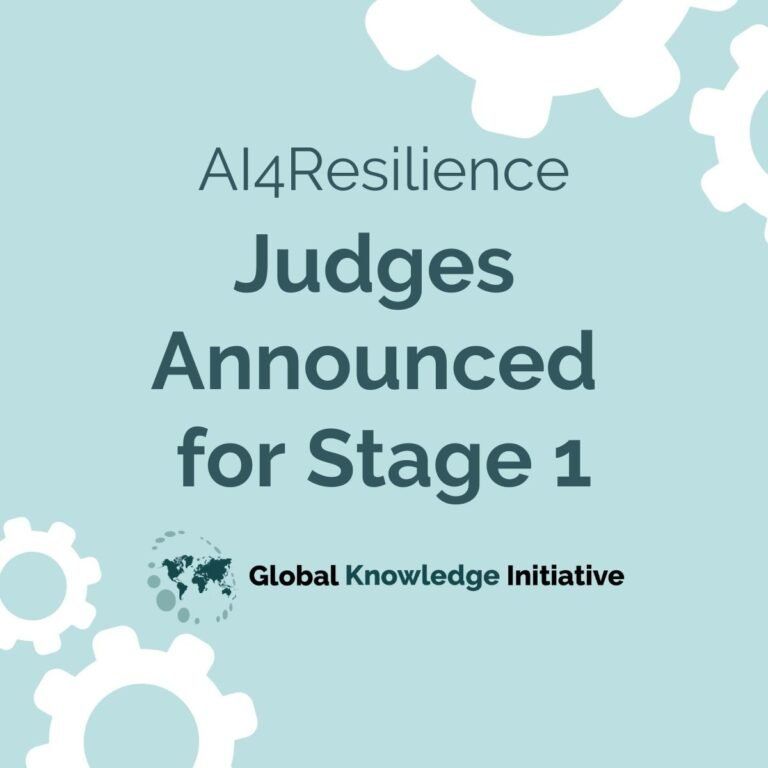Empowering Small-Scale Farmers in Africa through LINK Round IV

Four teams of intrepid African innovators form the centerpieces of the fourth round of the Global Knowledge Initiative’s (GKI) award-winning LINK (Learning and Innovation Network for Knowledge and Solutions) program. GKI is proud to work closely with the LINK winning team and three finalist teams, all selected by an independent, international technical committee. With small-scale farmers at the heart of their work, each team seeks to spur socioeconomic development in Africa through innovation in agriculture. GKI supports these teams with training on the collaborative innovation tools (https://www.globalknowledgeinitiative.org/news/top-10-collaborative-innovation-tools.html) and skills necessary to drive their ventures and projects toward impact. For the LINK winning team, GKI also provides strategy and network development support as they build a network of partners also working to tackle their challenge. The result: networks that deliver solutions to the world’s most pressing challenges! Below find an introduction to the exciting LINK Round IV teams.
Introducing LINK Round IV Challenge Teams
Winning Team: Biotechnology for Food Security in Uganda
Despite 81% of Uganda’s population working in agriculture, nearly half of the population suffers from malnourishment. Led by Dr. Geofrey Arinaitwe, Managing Director of BioCrops Uganda Ltd., the winning LINK team is committed to curbing food insecurity in Uganda by increasing small-scale farmer access to two staple crops: banana and orange-fleshed sweet potato. The LINK winners hope to ease the food supply constraints of farming households by providing them with high-tech agricultural inputs in the form of quality planting materials. This initiative also sets the foundation for viable pathways to sustainable agribusiness through sales of surplus crops. Comprised of entrepreneurs and technical experts, the LINK winning team is poised for success!
Finalist: Empowering Small-Scale Farmers to Enter South African Agricultural Markets
Small-scale farmers provide almost 70% of the world’s food supply and are the key drivers of agricultural production in Africa. In spite of their invaluable contribution to the sector, small-scale farmers face daunting hurdles accessing formal agricultural markets. To address this need, Dr. Sally Turketti of Stellenbosch University seeks to create a Centre of Education that empowers increasing numbers of small-scale farmers to enter agricultural markets in South Africa. The institution features a combination of targeted educational courses and hands-on training sessions in production and post-harvest handling techniques. Dr. Turketti’s Center will also provide tailored guidance on the entrepreneurial tools smallholder farmers need to build successful agribusiness ventures. With her extensive training as an agronomical engineer and her vast network within the agriculture sector, Dr. Turketti is the optimal candidate to help smallholder farmers access markets, learn necessary processing and handling technologies, and ultimately increase their incomes.
Finalist: Innovative Bee Farming Approaches for Poverty Reduction in Uganda
With 62.9% of the Ugandan population living on less than $2 a day, effective and sustainable approaches to poverty relief are of utmost importance. Dr. Fredrick Tumwine of Makerere University leads this LINK Round IV finalist team in exposing low-income communities of the Kamwenge district to innovative approaches to bee farming. A lucrative and low-cost enterprise, bee farming enables families to raise their incomes while optimizing production in other crops due to crop-pollination by bees. Equipped with expertise in bee farming, coalition building, and research, this finalist team is well positioned to make a positive impact on families in need.
Finalist: Shielding the Rungwe District of Tanzania from Mycotoxin Contamination
A subsistence crop for 80% of the Rungwe district’s population, maize is a staple food for many farming households in this community of Tanzania. However, Rungwe’s high-humidity climate increases the possibility of mycotoxin contamination of maize, which often causes child stunting, immunosuppression, and lower levels of nutrient retention. Recognizing the high costs of inaction,
Dr. Rose Mboya of the University of KwaZulu Natal has dedicated her career to solving this challenge. With years of experience teaching in the Rungwe district as well as a research focus on mycotoxin contamination of maize, Dr. Mboya seeks to educate farmers on detection systems as well as disseminate affordable and effective indoor grain drying technology to farming households. Together, these interventions will protect the health and livelihoods of farming households in Rungwe and elsewhere in Africa.
Looking Forward
In June 2014, GKI launched the LINK Round IV program with a series of trainings on tools to help teams collaborate and innovate. Held with teams in both Uganda and South Africa, the trainings provided an opportunity for the LINK teams to unpack their challenges and agree on specific focus areas for the upcoming years. Building on this experience, GKI designed and delivered a second suite of trainings in April 2015 in Uganda, and will deliver trainings in South Africa in the coming months. Rich with tools needed to understand market opportunities, refine a value proposition, optimize distribution channels, and develop innovation strategies, these trainings will ensure that each of the four LINK Round IV teams has a clear, viable, and effective roadmap to success. With motivated and highly skilled challenge teams, LINK Round IV is poised to produce results.
Contributors: Courtney O’ Brien; Latoya I. McDonald








